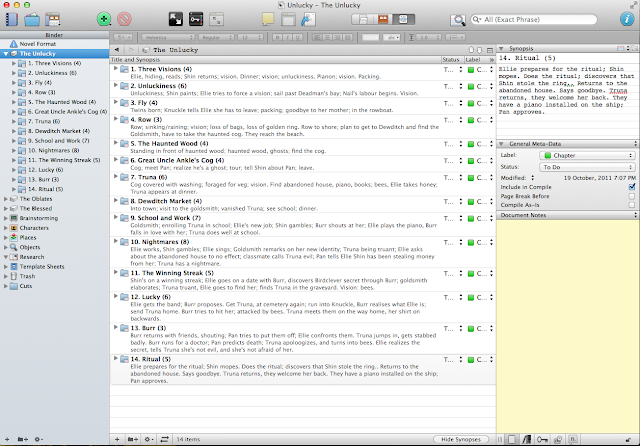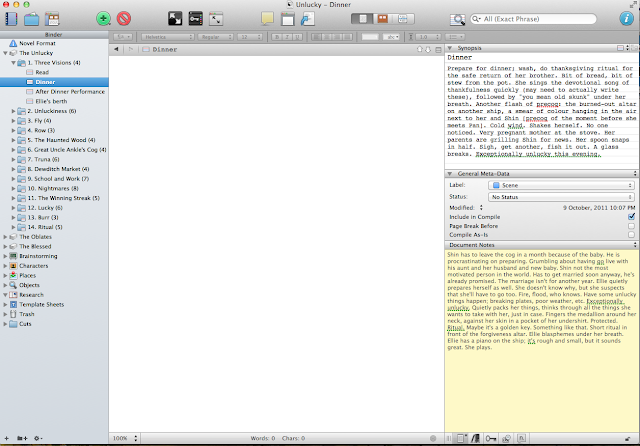I’m frustrated by the current state of research that claims that we read better and retain more from paper than from an ereader, and that this is because of the form, that somehow we need the permanency of paper in order to form memories of the plot of a novel. This makes zero sense to me, but I’ve heard this argument enough times at this point. Fortunately Spark did an episode that investigated this, and came to a better conclusion.
If you gave someone a short story and told them to read it in an empty library, you’d probably get a better result than taking someone to an empty carnival and telling them to read a short story there. Not because the empty library is quieter than the empty carnival, or because libraries are just naturally better places for reading. It would be because the person walking into a carnival isn’t prepared and primed for reading while the person walking into the library is. We already know this is true; this is why they tell you not to bring your computer to bed with you to finish up some work, because if you do work in bed on a regular basis, when you go to bed your head will be primed for work rather than sleep.
So I have doubts that these experiments with ereaders and books are telling anyone which form is better for the reading experience per se. It’s only telling us that people are currently primed to think of computers/tablets/screens as things to watch movies on, or play games on, or browse the internet on. Most people are not primed to consider a screen a reading surface.
But some people are. Some people read on screens all the time, for academic work or for fun. For books that don’t and won’t exist in paper, there are audiences who have already made the switch. They must have other cues that prime them for reading from the same screen they use for other tasks. Of course, readers of online books are always sitting in the bookstore as they read. If they don’t like the turn a story takes, I suspect they will back-button out quicker than a paper-book reader will give up on a book they’ve borrowed or purchased. With online novels, there is always a universe of other stories waiting if the current one doesn’t suit.
I would be interested to see studies like this done with more context. How do those who read fiction on a screen all the time fare against people who don’t? As ereaders get into the hands of more and more people and reading ebooks becomes just as common as reading any other kind of book, do the results change? If a person starts reading an ebook and has poorer comprehension results, do those results improve after a month of reading ebooks? A year?
I remember in the late nineties there was some discussion about how to talk about interaction with the internet. Browse won, but I remember someone on the news talking about “looking at the internet,” or “watching the internet.” As someone who was already far beyond “watching” or merely “looking” at digital material, I cringed. You can watch things online, that presenter wasn’t wrong. You do look at stuff on the internet. That guy saw a screen that looked a lot like a tv, and transferred the language and the modes of thinking to it. He was a passive viewer of internet content, and that’s how he framed his experience.
Ipads are not about being looked at, they’re about being interacted with. An ipad in particular is the first device to fit into that strange niche between smartphone and computer, a device driven entirely without a proxy roller ball or mouse or stylus or keyboard. You touch the content and it reacts. It’s an engagement device, not a device to be looked at or watched (though you can look at and watch things on ipads, too). It doesn’t really surprise me that giving a bunch of people ipads or ereaders doesn’t yet prime people to sink into deep contemplative thought. People are still primed to look at how their physical touch is interacting with digital activity.
Likewise, I wonder if anyone’s done any experiments on audiobooks. Read a page, hear a page: is one better than the other? I suspect it’s what you’re used to.
For many years I’ve been painfully aware of the anti-ebook league who are extremely keen to point out how inferior ebooks are. I know there was a similar group who objected to the written word in the first place (“if you don’t need to memorize it, everyone will become a gibbering idiot!”), and then to the printing press (“Bad! Cheap! Sloppy!”). While I still have a too-steady stream of paper books coming into my house, I’m glad books are going digital. To me, the story, the information, the content is the most important thing. Digital text isn’t limited by its font size. It can be read aloud by a screenreader. It can be translated by a braille display. I can twist it, add more notes to it than it contains in the first place. Like Dickens did it, it can be delivered serially. Digital text might mean more text, and to me that’s a plus.



 I’m not entirely sure how to spin this story.
I’m not entirely sure how to spin this story.